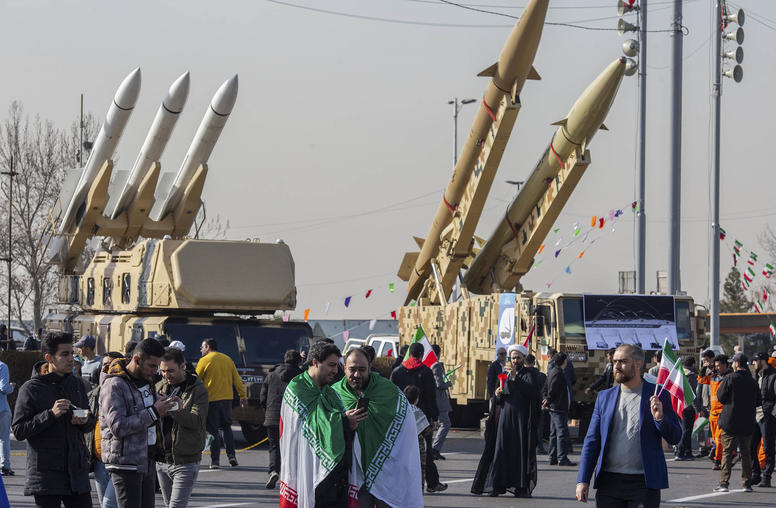Islamic State and Related Attacks in Lebanon Demand Comprehensive Response
Attacks by militants in Lebanon backed by an Al-Qaida affiliate and the Islamic State have highlighted again the vulnerability of the country's armed forces to terrorist threats and the political establishment's failure to reach agreement on a military strategy to confront terrorism. The solution will require much more than addressing the shortcomings of the military. Political leaders must address the underlying factors that contribute to the ability of extremists to make inroads and recruit on Lebanese soil.

The August assault on several military and police posts in the Lebanese border town of Arsal raised fears of a replica of the Islamic State’s capture of Iraq’s second-largest city of Mosul. While the militant groups, led by al-Qaida affiliate Nusra Front, also known as Jabhat al-Nusra, ultimately backed off in Lebanon – that time -- it was clearly a tactical withdrawal. Insurgents linked to or inspired by the extremist groups have staged multiple assaults since then.
Neither Nusra Front nor the Islamic State can spare fighters to mount a full invasion of Lebanon, as some overly dramatic political observers have claimed. But the acute Sunni-Shia polarization in the broader region, the chaotic management of the Syrian refugees influx, and the continual flow of money to militant groups, compounded by financial and logistical help from Lebanese factions and the country’s own deep divisions, have contributed to the radicalization of youths and opportunities for recruitment of fighters.
The new international coalition to counter the Islamic State may be able to degrade the group’s capabilities eventually, but the offensive is unlikely to destroy the militant organization entirely, so the threat will remain. and Lebanon must shore up its own defenses.
The discord within Lebanon’s government, which emerges regularly on other dangerous issues as well, essentially has paralyzed political decision-making and deprived the Lebanese Army of the necessary political umbrella to launch a larger military operation against the militant attacks. The tensions are exacerbated by divisions over the role of Hezbollah in supporting the forces of President Bashar al-Assad in neighboring Syria.
The Lebanese armed forces, as a result, suffer from a lack of proper training, equipment and command-and-control functions and from impunity for inept or corrupt high-ranking officers. Now that Lebanon is in an open confrontation with terrorist groups, all efforts are converging to buy equipment and train army personnel.
A comprehensive strategy
But just as important is a comprehensive strategy to address emerging terrorist threats that includes a military aspect – strengthening the armed forces, eliminating politicization of the military and instituting accountability measures – but also contains political and social dimensions. The Lebanese government must find a way to cope reasonably with the ticking time bomb of the Syrian refugee crisis. At the same time, officials must shore up the domestic education system, boost the economy and resume a long-stalled national dialogue to reach a political settlement among the country’s feuding factions.
The clash in refugee policies and practices by the United Nations and the Lebanese government has heightened the susceptibility of Syrian refugees to recruitment by militant groups, putting the Lebanese armed forces in the unsavory position of either conducting military operations in refugee camps and settlements that could result in civilian casualties, or just standing by while terrorist groups fill their ranks.
The registration of Syrian refugees has been flawed since its very beginning, so the available numbers today are actually higher than the reality, in part because a number of Syrians live in Lebanon because of economic hardship at home, not necessarily because they risk violence or harm . Authorities should urgently undertake a review of the status of refugees in Lebanon based on transparent criteria and in compliance with international standards, and then provide those legitimately fleeing violence with the international protection to which they are entitled and adopt a long-delayed foreign-labor policy to handle the remainder.
The government also could design innovative solutions to provide education for the estimated 250,000 young Syrian refugees who aren’t getting an education and devise employment programs for the adults. Ad-hoc settlements of refugees also need to be better-organized to improve the efficiency and delivery of the services they need.
For its own citizens, Lebanon’s government must reform the education system, address the significant socio-economic gaps and, most importantly, re-launch a genuine national dialogue process to move the country beyond its debilitating divisions. Lebanon’s economic growth has plunged since the outbreak of conflict next door in Syria, from 8 percent in 2010 to less than 1 percent in 2013, according to the World Bank. And while private education has ballooned, the government has fallen behind not only in the schools and universities it runs but also in adequately regulating and holding accountable the private sector. Today’s reality of the education sector in Lebanon, coupled with the difficulty finding employment, especially for youth, creates the ideal conditions for radical groups to ramp up their own enrollment efforts.
Failing to adopt a comprehensive strategy to counter extremist violence and influence only adds to the multiple vulnerabilities of Lebanon, turning a small country into an attractive theater of operations for an array of nefarious players.
Elie Abouaoun is director of Middle East programs at USIP and a lecturer at Saint Joseph University in Beirut.



